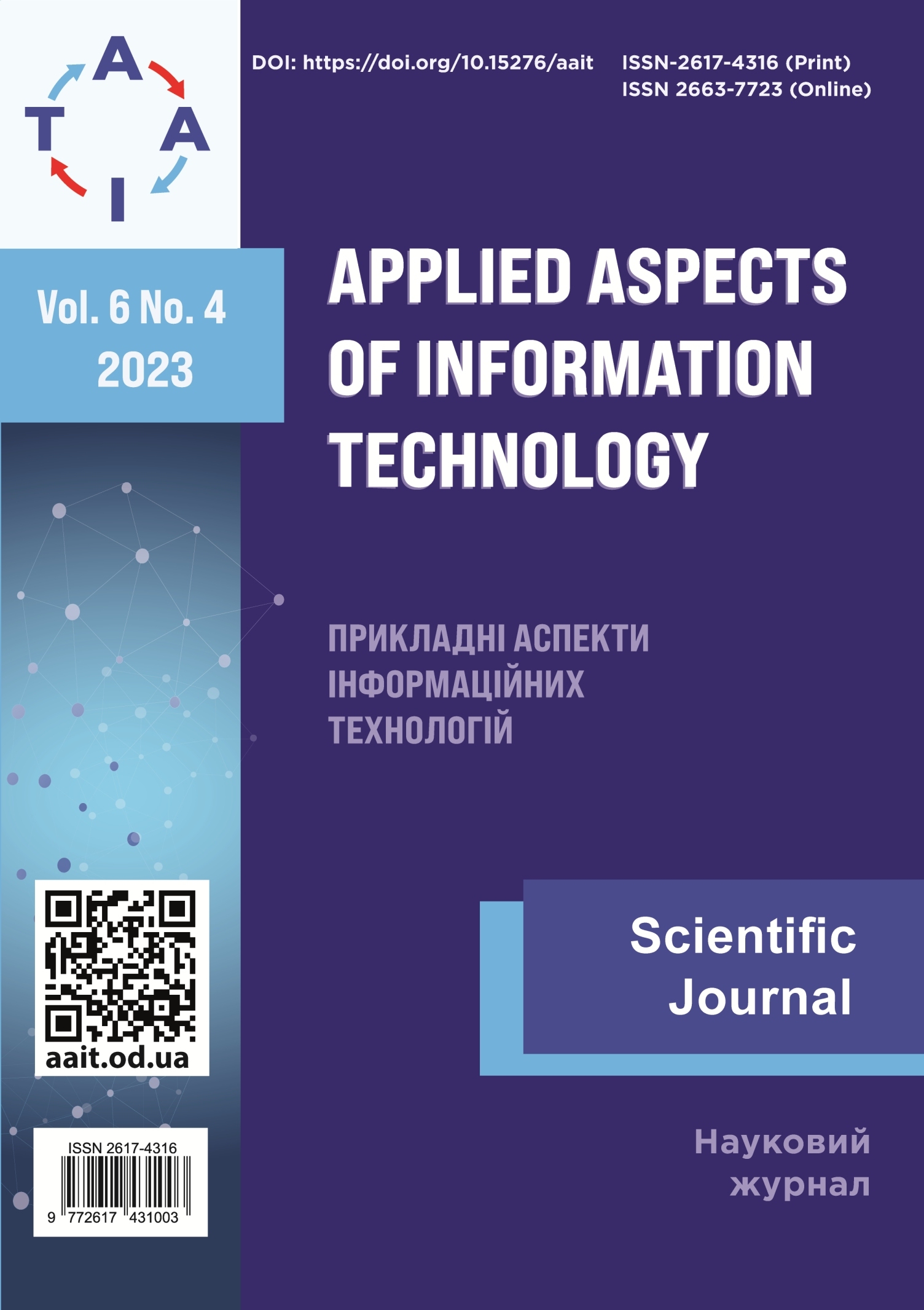Machine learning for human biological age estimation based on clinical blood analysis
Main Article Content
Abstract
This article explores the issue of estimating the biological age of a person using machine learning techniques. Biological age is a statistical indicator that reflects the degree of aging of an organism compared to other individuals in a specific population to which the organism belongs. This indicator aids medical professionals in diagnosing and treating diseases and assists researchers in studying the aging process in humans. There is no definitive correct formula for its determination because it is a statistical indicator and its value may vary depending on the dataset (population) and the selected set of indicators. The study aims is to create neural networks and choose a set of biomarkers that is both informative and easily accessible to the majority of individuals for evaluating biological age, ensuring both high recognition accuracy and operational speed. The object of study is the determination of the biological age of a person using information technology methods. The subject of study is the application of neural networks for determining the biological age of a person based on a clinical analysis of the human body's condition. Biomarkers correlating most with biological age were selected using the Pearson statistical method. The first neural network took selected biomarker values and previously calculated biological age as input and returned a predicted biological age as output. The second neural network took the predicted biological age and chronological age as input and returned a corrected predicted biological age as output. Accuracy assessment used the Pearson correlation coefficient, as well as classic error metrics such as coefficient of determination mean absolute error, and mean squared error. As a result of the research, were studied the dataset to identify biomarkers with the highest correlation coefficient values. Neural network architectures were selected and implemented to calculate biological age through general blood analysis. The best hyper parameters were selected experimentally and neural networks were trained. The obtained results conclude that a set of biomarkers for effective biological age recognition based on a comprehensive blood analysis has been developed and processed. Four neural networks were developed to realize the aim of the research (two for each gender). The Pearson correlation coefficient between the determined corrected biological age and chronological age for men is 0.9946, and for women is 0.9978, which is an indicator of high recognition accuracy. The scientific novelty of the conducted research lies in the application of an approach to assess human biological age based on the use of two neural networks and a set of biomarkers included in standard blood analysis packages. The proposed approach has allowed for an increase in the accuracy of biological age assessment and its usability in medical practice. This approach has been successfully applied to analyze the biological age of Ukrainian citizens, contributing significantly to the advancement of research in the field of biological age for medical professionals.



